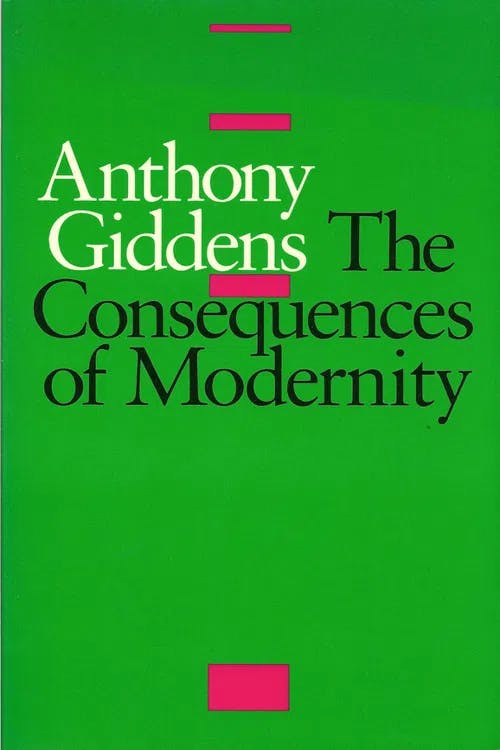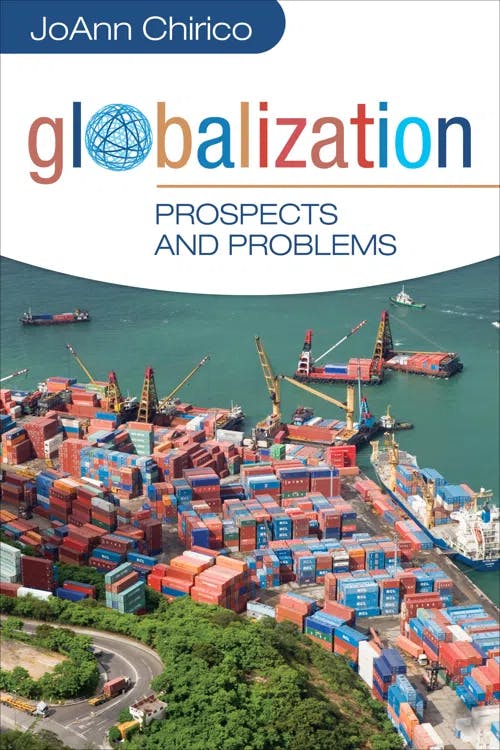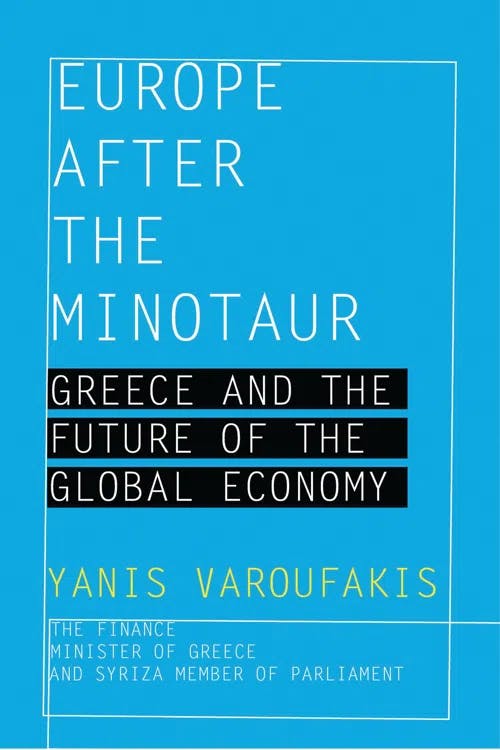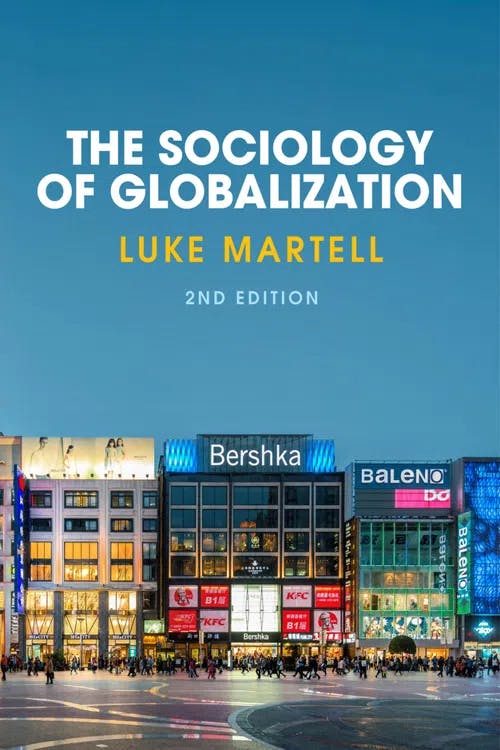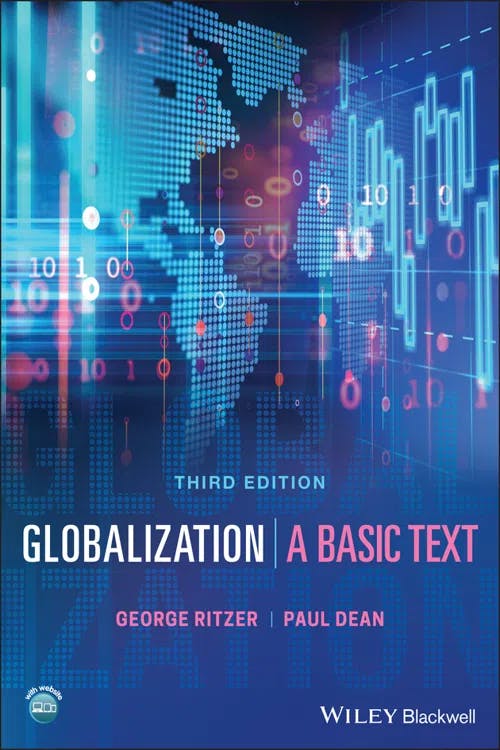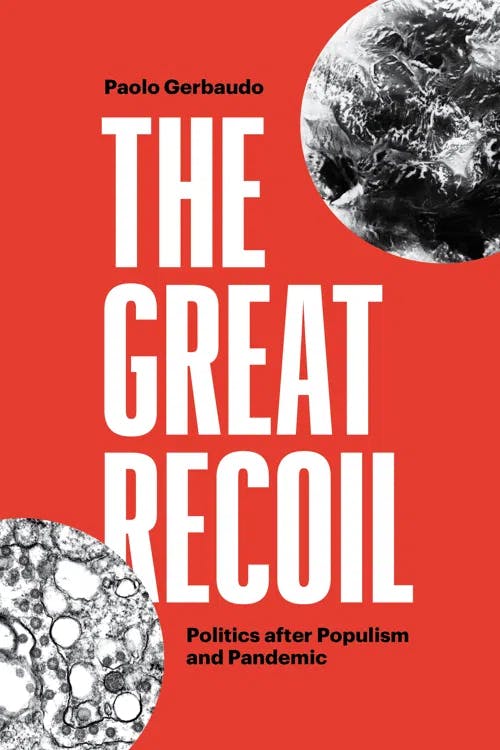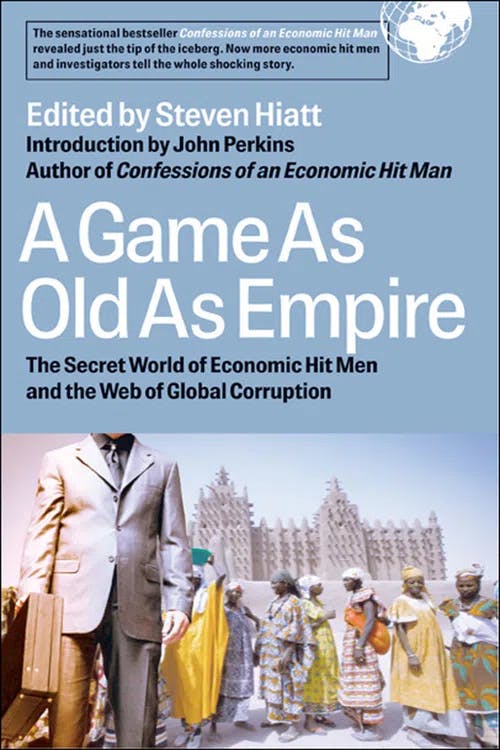What is Globalization?
MA, Sociology (Freie Universität Berlin)
Date Published: 08.06.2023,
Last Updated: 09.01.2024
Share this article
Defining globalization
To understand the pervasiveness of globalization, simply look around you. It’s likely that the device you’re reading this on was assembled in China, and the clothes you’re wearing were made in Bangladesh. You may have eaten Mexican food this week or perhaps Japanese. Your local café probably serves Italian cappuccino made from beans cultivated in South America. The most popular music in your region is likely to include both K-pop and reggaetón. Moreover, with the help of the internet, and social media in particular, you can be connected within seconds to glimpses of life taking place all around the world.
According to sociologist and preeminent scholar of globalization, Anthony Giddens,
In essence, Giddens describes globalization as the underlying processes that have made different localities around the globe far more interconnected than ever before.
While some argue that globalization can trace its roots back to 1492 when European ships first made contact with the Americas, the term generally became popular during the 1990s. Key developments such as the invention of the internet, the collapse of the Soviet Union, and the spread of neoliberal policy reforms in response to the global debt crisis of the 1980s are all central factors in shaping the character of globalization.
It is widely held that the primary underlying forces driving processes of globalization are economic, but these have been sanctioned through a number of political pacts and agreements. As the examples in the opening paragraph dictate, the results of globalization have shaped the cultural arena as well. In order to make sense of this vast and near all-encompassing project, this study guide starts by looking at different economic, political, and cultural forms of globalization — as well as how they fit together. From there, we will examine some of the ongoing controversies and debates that exist in current discourses around globalization.
Economic globalization
The Washington Consensus
At its core, the initial impetus for globalization was the push toward international trade liberalization. More specifically, economic globalization can trace its roots to the rise of neoliberalism during the 1980s in places like the United States and the United Kingdom. Neoliberalism went international with the help of the Washington Consensus — a set of neoliberal economic policy recommendations facilitated by the International Monetary Fund (IMF) and the World Trade Organization (WTO).
In line with the neoliberal thinking of the day, the Washington Consensus stipulated that best practices in international development included privatization of public services, government deregulation of the economy, encouragement of foreign direct investment, and the relaxing of international trade restrictions. As many countries in the global South — namely, in Latin America — faced debt crises during the 80s and 90s, they faced pressures to enact policies in line with the Washington Consensus.
Countries such as Mexico, for instance, entered into the North American Free Trade Agreement (NAFTA), which liberalized the economy and opened their markets up to foreign competition. As Alyshia Gálvez explains in Eating NAFTA (2018), it was believed that by adopting similar economic principles as those exhibited in the United States, Mexico’s economy could gain a competitive advantage in the global market. Gálvez writes,
Meanwhile, in other Latin American countries such as Chile, governments promoted foreign direct investment through policy reforms, which made it more hospitable to foreign investors and business enterprises. These included reducing tariffs and privatizing previously state-owned sectors of mining, telecommunications, and energy. Similarly, when the Soviet Union collapsed, former satellite nations implemented Washington Consensus policy reforms in order to become integrated into the global financial market.
Multinational corporations
This kind of trade liberalization through privatization, deregulation, and relaxing of national economic protections such as tariffs or government interventions in the economy, was meant to promote development and increase flows of goods and capital to all nations who implemented them. While the actual effects of globalization are much more uneven, the implementation of Washington Consensus policy recommendations has been unequivocally beneficial to the rise of multinational corporations.
As JoAnn A. Chirico explains in Globalization: Prospects and Problems, economic globalization gave multinationals unprecedented power so that,
More specifically, multinational corporations benefited so much from the policies of the Washington Consensus because they were more easily able to outsource their supply chains to include places with the cheapest stores of labor and natural resources. They were also better able to offshore production to places where they’d be subject to the lowest taxes and the fewest production regulations. Corporations ranging from agricultural giant Monsanto to security services such as G4S to the clothing brand Zara are prime examples of multinationals that were able to expand with the help of Washington Consensus policy reforms.
Meanwhile, in making conditions more friendly to multinational corporations in the hopes of improving their overall economic outlook, working conditions and labor rights plummeted in many countries who implemented Washington Consensus reforms. This is because many countries in the global South were now playing into downward competition with other developing nations looking to attract foreign direct investment — a phenomenon known as the race to the bottom. As a result, globalization is also associated with the rise of sweatshop labor, and a major reason why so many consumer goods are produced in countries where labor is cheapest. We can see this happening in China and in export processing zones on the US-Mexican border known as maquiladoras.
Thus, the economic impacts of globalization have affected countries differently, as some have benefited more from trade liberalization while others have been exploited by it. This raises questions about the politics of globalization, the ways in which it has served to undermine national sovereignty, and what all of this means for conceptions of citizenship and civic responsibility on the international arena.
Political globalization
Multilateralism
The underlying economic forces of globalization also bear their political consequences. For one, it has given rise to multilateral organizations, which have played an increasingly important role in global governance. Firms like the IMF, WTO, and multinational corporations have risen to prominence as examples of multilateral organizations that influence the policy decisions of nations around the world. As Chirico observes,
Despite the assertion that multilaterals promote regional stability, many argue that they also undermine national sovereignty, as they are neither democratically elected nor governed by any single state jurisdiction (Martell, The Sociology of Globalization, 2016).
The European Union: a case study in political globalization
One example of political globalization is the European Union, a consolidated economic sphere that acts in many ways as a political entity. It offers insights into the benefits and pitfalls of multilateral governance, as it raises several questions about democracy, civic participation, cosmopolitanism, and more.
On the one hand, critics of the European Union have argued that it operates on a democratic deficit, where its citizens are distanced from political decision making by governing institutions, which are not directly accountable to them. One key example of how this has played out is in the case of Greece who, during the 2008 financial crisis, struggled immensely for being part of the Eurozone. It was not able to devalue its currency to address the economic challenges it was facing due to the fact that its currency was shared with other EU member states who faced less severe economic realities. As Yanis Varoufakis recounts in Europe after the Minotaur,
As a result, the Greek government negotiated with EU governing institutions to enact harsh austerity measures to pay back its debt. The Greek people were not able to vote on these decisions, raising questions about the state of democratic participation for EU member states.
Still, proponents of the European Union highlight the ways in which a unified Europe has enabled peace and cooperation between member states. They point to the relaxed border policies of the Schengen zone and study-abroad programs like Erasmus that have enabled intercultural exchanges through tourism and education, respectively. EU membership has also shifted conceptions of citizenship from the nation-state to a broader sense of shared European cosmopolitanism.
Cultural globalization
The sense of cosmopolitanism encouraged by globalization also influences matters of culture and consumption. In particular, the promotion of free trade as well as technological developments such as the internet have also had enormous impacts on cultures throughout the world. With unprecedented access to consumer products, media, and information, people can tailor their interests and tastes to an international array of cultural output and perspectives. We can even reimagine our identities and values in line with globalized exposure to other cultures. Sociologists categorize the cultural impacts of globalization in terms of hybridization and homogenization.
Cultural hybridization
Sociologists argue that one result of global multiculturalism is the hybridization of different cultures to create new ones that are less contingent on specific locality or place. In Sociology of Globalization, Luke Martell describes how
The genre of world music, for instance, offers a quintessential example of cultural hybridization under globalization, as it mixes instruments, rhythms, and vocal techniques from cultural influences hailing from around the world.
Cultural homogenization
The creative power of globalization to bring about new forms of cultural production and international solidarity is counterbalanced by globalization’s simultaneous tendency to promote cultural homogenization. Such is exemplified in the dissemination of consumer products by an increasingly concentrated conglomerate of multinational corporations. Sociologists George Ritzer and Paul Dean have termed this phenomenon Mcdonaldization:
With the same chains existing in several countries around the globe, trends, tastes, and aesthetics have become increasingly homogenized worldwide — in lieu of a diversity of disparate, regional styles and forms of expression. In more recent times, social media also plays into this, as it reinforces certain visual trends on a mass scale that is independent of location.
Why is globalization so controversial?
As you may have noticed, globalization has had myriad and often contradictory impacts on the realms of economics, politics, and culture. Oftentimes, despite its more utopian vision to make the world into a global community centered on liberal values such as free trade and democracy, the realities of how it has played out are far more complex. Its proponents can point to some real, tangible gains in rising standards of living whilst its critics generally take issue with the centrality of market relations as the primary force driving processes of globalization. Both standpoints present some important aspects of how globalization has shaped contemporary life, and deserve our further consideration.
Proponents of globalization
Proponents of globalization — at least in its current market-centric form — are generally those who are in favor of liberal economics. They maintain that enabling global trade and bringing developing countries more closely into the fold of capitalism have yielded unprecedented access to goods and services for people around the world. As a result, they argue, there has been a marked improvement in living standards, as measured by increased life expectancy, decreased rates of maternal mortality, and rising GDPs in those countries in the global South that have adopted Washington Consensus policy reforms. Sociologist Luke Martell points to the fact that with globalization,
Moreover, its advocates argue that through globalization, there is more opportunity for international cooperation, which in turn, will foster peace, democracy, and understanding between nations. This kind of emphasis on global governance is essential for combatting issues like nuclear disarmament and climate change. Processes of globalization such as the dissemination of digital media have also played a key role in international social movements ranging from the Arab Spring to fourth-wave feminism in Latin America. In this sense, it has helped to spread awareness and solidarity among people from far-flung regions around the world.
Critics of globalization
Despite what metrics such as GDP might indicate, critics of globalization complicate notions that its impacts on quality of life have been uniformly positive. Instead, they argue that improved national economic outcomes do not necessarily translate to benefitting the lives of everyday people. Rather, its critics contend that economic liberalization has actually come at a great cost to labor conditions and the environment. Those who mount this critique point out that, for the most part, flows of capital and goods tend to be extracted from the global South for consumption in the global North. In this sense, globalization has simply reinforced the existing hegemonic global order, and has not necessarily enabled countries to develop on their own terms. For example, returning to the case of Mexico in relation to NAFTA and Greece as a member of the European Union, certain countries have fared far worse under these multilateral agreements.
Moreover, global migration is at an all time high, and critics of globalization point out that flows of capital and goods have not coincided with enabling the free flow of people. This especially intersects with racism and xenophobia, as certain border contexts such as the US-Mexican border and the external borders of the EU have seen thousands of refugees meet their deaths due to being denied entry (De Leon, Land of the Open Graves, 2015).
Globalization backlash: rightwing populism
In line with rising tides of racism and xenophobia, which manifest in public calls towards border protectionism, there has also been a staunch backlash against globalization in the form of the rise of rightwing populism around the world. Representing what sociologist and political theorist Paolo Gerbaudo describes as a kind of political agoraphobia that has emerged out of the global dissemination of neoliberal policies facilitated through the Washington Consensus,
This has culminated most strikingly in the case of the EU with Brexit in 2016, as the UK voted in a referendum to leave it altogether. Yet, it is also evident in the platforms of parties across Europe, the United States, India, Brazil, and more. These campaigns run on protectionist and nationalist platforms that have gained popularity in fierce opposition to the liberal values espoused by globalization.
Global Justice Movement
The Global Justice Movement has emerged as one of the most explicit challenges to globalization. Composed of a wide range of groups including anarchists, environmentalists, and indigenous rights activists, its members don’t take issue with global multiculturalism as much as they do with the centrality of liberal economics in shaping the course of globalization. While more wealth may have been generated through adoption of Washington Consensus policy recommendations, they argue that it has mostly been concentrated into the hands of a small minority of people and corporations at the expense of the vast majority of people. They contend that this has resulted in rising social inequality and has threatened the capacity of regular people to participate in democratic decision making.
One prime example of the Global Justice Movement in action can be found in the struggles of the Zapatistas, indigenous peasant farmers in the Mexican state of Chiapas. They gained international attention for their fight to gain food and land sovereignty in response to Mexico’s participation in NAFTA. As Steven W. Hiatt explains in A Game As Old As Empire,
The Zapatistas used the internet to connect their struggle to the wider Global Justice Movement in opposition to trade liberalization, building solidarity with others worldwide toward an alternative vision of human-centric internationalism. They have fought to maintain autonomy over their lands and food systems, and have since become a symbol of resistance against market-centric globalization.
Closing thoughts
Globalization describes the intensification of worldwide social relations that has occurred since the 1990s. With the drive toward international trade liberalization at the helm, globalization has effectively reconfigured the spheres of economics, politics, and culture. Its proponents argue that globalization has promoted a sense of cosmopolitanism between nations, enabling more peace, cooperation, and higher standard of living worldwide. Its opponents generally take issue with the neoliberal character of globalization, and remain more skeptical of its positive impacts.
Putting the range of debates that exist around it aside, globalization is undoubtedly a pervasive force that influences our tastes, identities, and how we orient ourselves in relation to other cultures and societies. Backlash to globalization has manifested in the rise of rightwing populist parties around the globe, and globalization will undoubtedly continue to be a key factor in how the international community responds to pressing challenges such as climate change. It continues to play a major role in shaping global events and their impacts, as we can see in the case of rising inflation stemming from the war in Ukraine as well as in the spread of the coronavirus pandemic.
Further reading on Perlego
Appadurai, A. (2001) Globalization. Duke University Press Books. Available at: https://www.perlego.com/book/1467462/globalization-pdf
Brown, W. (2010) Walled States, Waning Sovereignty. Zone Books. Available at: https://www.perlego.com/book/1600710/walled-states-waning-sovereignty-pdf
Davis, A.Y. (2016) Freedom is a Constant Struggle. Haymarket Books. Available at: https://www.perlego.com/book/566536/freedom-is-a-constant-struggle-ferguson-palestine-and-the-foundations-of-a-movement-pdf
Held, D. (2004) A Globalizing World?: Culture, Economics, Politics. Routledge. Available at: https://www.perlego.com/book/1618327/a-globalizing-world-culture-economics-politics-pdf
Ortega y Gasset, J. (2021) The Revolt of the Masses. Routledge. Available at: https://www.perlego.com/book/2567518/the-revolt-of-the-masses-pdf
Robinson, W.I. (2020). Transnational Conflicts: Central America, Social Change, and Globalization. Verso US. Available at: https://www.perlego.com/book/3785889/transnational-conflicts-central-america-social-change-and-globalization-pdf
Bibliography
Chirico, J. A. (2013) Globalization: Prospects and Problems. SAGE Publications, Inc. Available at: https://www.perlego.com/book/2800689/globalization-prospects-and-problems-pdf
Della Porta, et al. (2016) Global Justice Movement. Routledge. Available at: https://www.perlego.com/book/1568641/global-justice-movement-crossnational-and-transnational-perspectives-pdf
Gálvez, A. (2018) Eating NAFTA. University of California Press. Available at: https://www.perlego.com/book/773106/eating-nafta-trade-food-policies-and-the-destruction-of-mexico-pdf
Gerbaudo, P. (2021) The Great Recoil. Verso UK. Available at: https://www.perlego.com/book/2815464/the-great-recoil-politics-after-populism-and-pandemic-pdf
Giddens, A. (2013) The Consequences of Modernity. Polity. Available at: https://www.perlego.com/book/1535427/the-consequences-of-modernity-pdf
Hiatt, S.W. (2007) A Game As Old As Empire. Berrett-Koehler Publishers. Available at: https://www.perlego.com/book/116216/a-game-as-old-as-empire-the-secret-world-of-economic-hit-men-and-the-web-of-global-corruption-pdf
Martell, L. (2016) Sociology of Globalization. Polity. Available at: https://www.perlego.com/book/1536101/the-sociology-of-globalization-pdf
Miller, T.E. & Shahriari, A. (2020) World Music: A Global Journey. Routledge. Available at: https://www.perlego.com/book/2194182/world-music-a-global-journey-pdf
Ritzer, G. & Dean, P. (2021) Globalization: A Basic Text. Wiley-Blackwell. Available at: https://www.perlego.com/book/3028541/globalization-a-basic-text-pdf
Varoufakis, Y. (2015) Europe after the Minotaur. Zed Books. Available at: https://www.perlego.com/book/2003337/europe-after-the-minotaur-greece-and-the-future-of-the-global-economy-pdf
MA, Sociology (Freie Universität Berlin)
Lily Cichanowicz has a master's degree in Sociology from Freie Universität Berlin and a dual bachelor's degree from Cornell University in Sociology and International Development. Her research interests include political economy, labor, and social movements. Her master's thesis focused on the labor shortages in the food service industry following the Covid-19 pandemic.

